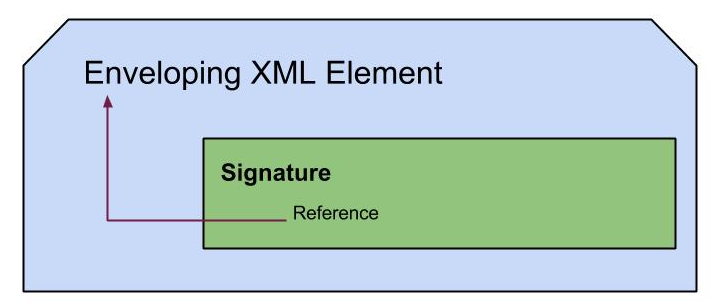XACML 3.0 Policies - Restricting Conditions - 3
This is the third post of a series of post, after writing XACML 3.0 policies(Writing XACML 3.0 policies, Diverse Rules Per Operation - 2) to satisfy several rules for different operations. With this I am to share a policy written with a much restricted condition for the rule. Following is our requirement in points.
- The operation getEmployees in the service http://localhost:8280/services/Customers should only be accessed by the users belong to both the groups admin_emps and admin
- If the user belongs to more groups than admin_emps and admin - request should fail
- Request to any other service or operation should fail
Here is the policy written for this requirement.
<Policy xmlns="urn:oasis:names:tc:xacml:3.0:core:schema:wd-17" PolicyId="testAnd" RuleCombiningAlgId="urn:oasis:names:tc:xacml:1.0:rule-combining-algorithm:first-applicable" Version="1.0"> <Description>Test And</Description> <Target></Target> <Rule Effect="Permit" RuleId="primary-group-emps-rule"> <Target> <AnyOf> <AllOf> <Match MatchId="urn:oasis:names:tc:xacml:1.0:function:string-regexp-match"> <AttributeValue DataType="http://www.w3.org/2001/XMLSchema#string">http://localhost:8280/services/Customers/getEmployees</AttributeValue> <AttributeDesignator AttributeId="urn:oasis:names:tc:xacml:1.0:resource:resource-id" Category="urn:oasis:names:tc:xacml:3.0:attribute-category:resource" DataType="http://www.w3.org/2001/XMLSchema#string" MustBePresent="true"></AttributeDesignator> </Match> <Match MatchId="urn:oasis:names:tc:xacml:1.0:function:string-equal"> <AttributeValue DataType="http://www.w3.org/2001/XMLSchema#string">read</AttributeValue> <AttributeDesignator AttributeId="urn:oasis:names:tc:xacml:1.0:action:action-id" Category="urn:oasis:names:tc:xacml:3.0:attribute-category:action" DataType="http://www.w3.org/2001/XMLSchema#string" MustBePresent="true"></AttributeDesignator> </Match> </AllOf> </AnyOf> </Target> <Condition> <Apply FunctionId="urn:oasis:names:tc:xacml:1.0:function:string-set-equals"> <AttributeDesignator AttributeId="group" DataType="http://www.w3.org/2001/XMLSchema#string" Category="urn:oasis:names:tc:xacml:3.0:example-group" MustBePresent="true"></AttributeDesignator> <Apply FunctionId="urn:oasis:names:tc:xacml:1.0:function:string-bag"> <AttributeValue DataType="http://www.w3.org/2001/XMLSchema#string">admin_emps</AttributeValue> <AttributeValue DataType="http://www.w3.org/2001/XMLSchema#string">admin</AttributeValue> </Apply> </Apply> </Condition> </Rule> <Rule Effect="Deny" RuleId="deny-rule"></Rule> </Policy>
Yes. That's it. Though the requirement is strict, the policy is not that complex thanks to the power of the function. As we can notice now 'FunctionId="urn:oasis:names:tc:xacml:1.0:function:string-set-equals"' do the restriction we needed just looking for exact match, no more, no less. Let's witness this for ourselves.
- Admin user belonging to both groups admin_emps and admin groups tries to access the operation 'http://localhost:8280/services/Customers/getEmployees'. Response: Permit
<Request xmlns="urn:oasis:names:tc:xacml:3.0:core:schema:wd-17" CombinedDecision="false" ReturnPolicyIdList="false"> <Attributes Category="urn:oasis:names:tc:xacml:3.0:attribute-category:action"> <Attribute AttributeId="urn:oasis:names:tc:xacml:1.0:action:action-id" IncludeInResult="false"> <AttributeValue DataType="http://www.w3.org/2001/XMLSchema#string">read</AttributeValue> </Attribute> </Attributes> <Attributes Category="urn:oasis:names:tc:xacml:1.0:subject-category:access-subject"> <Attribute AttributeId="urn:oasis:names:tc:xacml:1.0:subject:subject-id" IncludeInResult="false"> <AttributeValue DataType="http://www.w3.org/2001/XMLSchema#string">admin</AttributeValue> </Attribute> </Attributes> <Attributes Category="urn:oasis:names:tc:xacml:3.0:example-group"> <Attribute AttributeId="group" IncludeInResult="false"> <AttributeValue DataType="http://www.w3.org/2001/XMLSchema#string">admin_emps</AttributeValue> <AttributeValue DataType="http://www.w3.org/2001/XMLSchema#string">admin</AttributeValue> </Attribute> </Attributes> <Attributes Category="urn:oasis:names:tc:xacml:3.0:attribute-category:resource"> <Attribute AttributeId="urn:oasis:names:tc:xacml:1.0:resource:resource-id" IncludeInResult="false"> <AttributeValue DataType="http://www.w3.org/2001/XMLSchema#string">http://localhost:8280/services/Customers/getEmployees</AttributeValue> </Attribute> </Attributes> </Request>
- Admin user belonging to admin, admin_emps and business groups tries to access the operation 'http://localhost:8280/services/Customers/getEmployees'. Response:Deny
<Request xmlns="urn:oasis:names:tc:xacml:3.0:core:schema:wd-17" CombinedDecision="false" ReturnPolicyIdList="false">
<Attributes Category="urn:oasis:names:tc:xacml:3.0:attribute-category:action">
<Attribute AttributeId="urn:oasis:names:tc:xacml:1.0:action:action-id" IncludeInResult="false">
<AttributeValue DataType="http://www.w3.org/2001/XMLSchema#string">read</AttributeValue>
</Attribute>
</Attributes>
<Attributes Category="urn:oasis:names:tc:xacml:1.0:subject-category:access-subject">
<Attribute AttributeId="urn:oasis:names:tc:xacml:1.0:subject:subject-id" IncludeInResult="false">
<AttributeValue DataType="http://www.w3.org/2001/XMLSchema#string">admin</AttributeValue>
</Attribute>
</Attributes>
<Attributes Category="urn:oasis:names:tc:xacml:3.0:example-group">
<Attribute AttributeId="group" IncludeInResult="false">
<AttributeValue DataType="http://www.w3.org/2001/XMLSchema#string">admin_emps</AttributeValue>
<AttributeValue DataType="http://www.w3.org/2001/XMLSchema#string">admin</AttributeValue>
<AttributeValue DataType="http://www.w3.org/2001/XMLSchema#string">business</AttributeValue>
</Attribute>
</Attributes>
<Attributes Category="urn:oasis:names:tc:xacml:3.0:attribute-category:resource">
<Attribute AttributeId="urn:oasis:names:tc:xacml:1.0:resource:resource-id" IncludeInResult="false">
<AttributeValue DataType="http://www.w3.org/2001/XMLSchema#string">http://localhost:8280/services/Customers/getEmployees</AttributeValue>
</Attribute>
</Attributes>
</Request>
- Admin user belonging only to the admin group tries access the operation 'http://localhost:8280/services/Customers/getEmployees'. Response:Deny
<Request xmlns="urn:oasis:names:tc:xacml:3.0:core:schema:wd-17" CombinedDecision="false" ReturnPolicyIdList="false"> <Attributes Category="urn:oasis:names:tc:xacml:3.0:attribute-category:action"> <Attribute AttributeId="urn:oasis:names:tc:xacml:1.0:action:action-id" IncludeInResult="false"> <AttributeValue DataType="http://www.w3.org/2001/XMLSchema#string">read</AttributeValue> </Attribute> </Attributes> <Attributes Category="urn:oasis:names:tc:xacml:1.0:subject-category:access-subject"> <Attribute AttributeId="urn:oasis:names:tc:xacml:1.0:subject:subject-id" IncludeInResult="false"> <AttributeValue DataType="http://www.w3.org/2001/XMLSchema#string">admin</AttributeValue> </Attribute> </Attributes> <Attributes Category="urn:oasis:names:tc:xacml:3.0:example-group"> <Attribute AttributeId="group" IncludeInResult="false"> <AttributeValue DataType="http://www.w3.org/2001/XMLSchema#string">admin_emps</AttributeValue> </Attribute> </Attributes> <Attributes Category="urn:oasis:names:tc:xacml:3.0:attribute-category:resource"> <Attribute AttributeId="urn:oasis:names:tc:xacml:1.0:resource:resource-id" IncludeInResult="false"> <AttributeValue DataType="http://www.w3.org/2001/XMLSchema#string">http://localhost:8280/services/Customers/getEmployees</AttributeValue> </Attribute> </Attributes> </Request>
Cheers!
References - Corresponding XACML 2.0 policy - FacileLogin
You can find my next post here, http://pushpalankajaya.blogspot.com/2013/06/xacml-30-policies-restricting-condition.html which discusses how to make the policy little more flexible.
References - Corresponding XACML 2.0 policy - FacileLogin
You can find my next post here, http://pushpalankajaya.blogspot.com/2013/06/xacml-30-policies-restricting-condition.html which discusses how to make the policy little more flexible.

